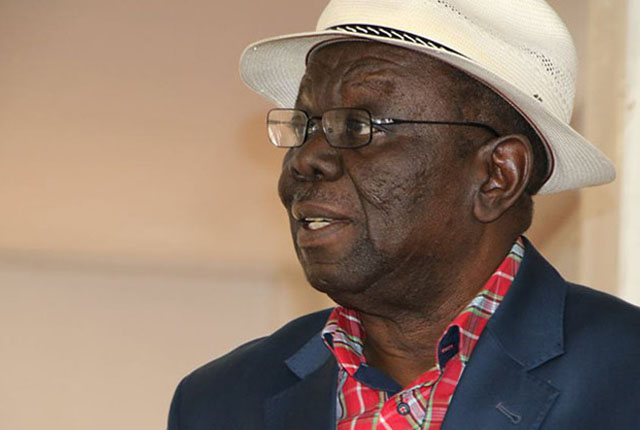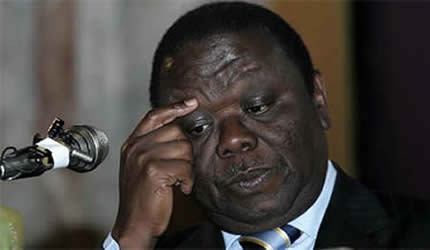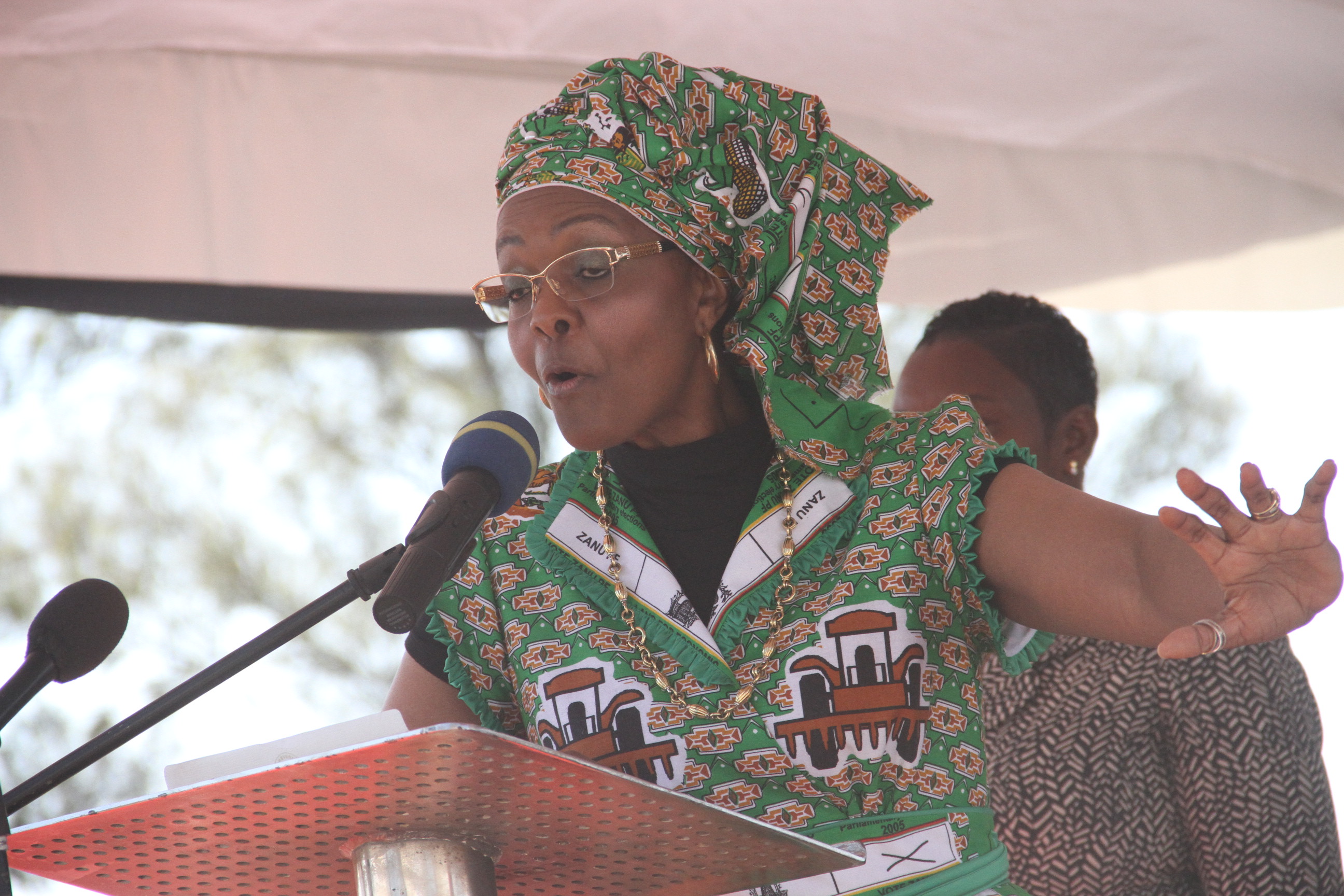Beware the ghost of Benghazi

Joram Nyathi : Spectrum
YOUTH is a period of impetuosity and adventure. It is a time to test and experiment. It is a period of physical and mental growth. Youth is a time of discovery and for self-definition. It is a time to search for oneself and to also reach out for opportunities thrown about by good fortune. In Zimbabwe politics has provided one of the most fertile grounds for the adventurous and the ambitious. Especially since 2000, debased though opposition politics has been.On July 15 this year MDC-T leader Morgan Tsvangirai sprang a surprise when he appointed two long-serving members of his party vice presidents. That’s Nelson Chamisa and Elias Mudzuri. The surprise was that the two had not been his closest allies in the party since his ignominious loss to President Mugabe in the July 31, 2013 harmonised elections.
Mudzuri had then fashioned scenarios whose ultimate objective was to get Tsvangirai out of the way. Chamisa, on the other hand, was viewed as too ambitious and a personal threat to Tsvangirai’s leadership of the party.
A few days before the surprise appointments, which upset and riled many in the party ranks, not least the sole serving female vice president Thokozani Khupe, party secretary-general Douglas Mwonzora and spokesman Obert Gutu, Tsvangirai had disclosed that he had been diagnosed with cancer of the colon. He said he was receiving treatment in South Africa.
Elias Mudzuri and Nelson Chamisa, he told believers and non-believers, were appointed to relieve Atlas’ load from his failing shoulders.
But since disclosing his physical ailment Tsvangirai has not rested from party activities, only he couldn’t have anticipated the ramifications of his appointment of helpers. Since then he has escalated his search for a pact of opposition forces ahead of the 2018 elections, a search which, inadvertently, has alarmed his appointees about his true intentions and raised the ideological stakes in the intended coalition.
The charitable view when Tsvangirai appointed Mudzuri and Chamisa as his deputies was that he probably was too sick to continue active party work and was therefore working out a systematic succession plan in the party, which he could manage by remote control.
Including the eventual person to take over as party leader among the three vice presidents.
Some two weeks ago Tsvangirai seems to have gotten too close to Zimbabwe People First leader Dr Joice Mujuru. Today we hear there are 18 political parties which have joined hands. But it is Mujuru who appears to have rattled MDC-T senior members and muddied the succession matrix.
While to an outsider and the general MDC-T membership Dr Mujuru might look like a fat catch who brings in her train voters and liberation war credentials (and possibly the vote of disaffected war veterans) to lend opposition politics electoral gravitas, in the upper echelons matters are not so clean, and Chamisa made this clear last weekend. Put it to ambition and impetuousness and some bitterness.
He told party supporters in his Kuwadzana East constituency that the party could not allow mafikizolos to make a meteoric rise to the apex of the party and leadership. That was a preserve of those who had always been in opposition politics, he said.
The allusion to Mujuru demands no science or prophesy. What’s not clear is how Tsvangirai did not see it coming.
Tsvangirai dangled a carrot to Mudzuri and Chamisa by announcing that he was sick and secondly by appointing them to succeed him, as it were. But by bringing in Dr Mujuru, Tsvangirai is in fact saying my succession is not a done deal. He wants to fight another day and possibly work out a deal in which he is either leader of that coalition or its deputy, thus pushing Chamisa and Mudzuri further down in the pecking order.
It is a form of power usurpation young and ambitious Chamisa cannot stomach and is set to upset this marriage of convenience between the MDC-T and People First project.
While Tsvangirai is trying to draw Dr Mujuru closer as an ally and possibly a rung on the ladder to State House, she is seen by Tsvangirai’s deputies as an undeserving intruder, an impeding rival in the MDC-T house and an obstacle in what, until the Gweru photoshow, looked like a gold-paved highway for Chamisa.
He might find it necessary to get out of Tsvangirai’s shadow, who is compromised now, to fight for the soul of MDC-T in his own right.
But besides the quest for power, Dr Mujuru has problems of her own, that is if she has personal principles and has ever stood for anything other than power. The MDC-T cannot be the pedestal upon which any self-respecting war veteran would stand to reach for the mantle of President of the Republic. And that includes the whole lot of war veterans supporting her.
Let’s put matters into perspective. Unlike Tsvangirai’s MDC, Zanu-PF did not split. Mujuru did not leave Zanu-PF on matters of principle or policy. She and her colleagues were fired for trying to rush the succession train. Until the very last minute, she insisted she was Zanu-PF despite pressure, cajoling, instigation and inducement to break away and to form a political party.
The same goes for the war veterans who support her. They insist they are Zanu-PF and cannot be anything other than Zanu-PF. It is hard, though not impossible, to imagine them exchange the black fist for a white, open palm campaigning for a Tsvangirai or Mujuru presidency.
In the strict sense of the word, there is no ideological contestation in Zanu-PF. And Zanu-PF can be anything, but MDC-T, ideologically. But in a quest for power, anything is possible. Venality and opportunism can masquerade as strategy. Because at heart, Dr Mujuru wants power, but as leader of Zanu-PF.
So, the romance, when it ends, which should start unravelling soon, Tsvangirai should be out for compromising and Chamisa in for consistency and keeping the party clean of Zanu-PF rejects. For at the heart of the MDC-T is regime change and war veterans can’t be part of that project.
Echoes of Benghazi
Few even among the most valiant war veterans would want to wear Police Commissioner-General Augustine Chihuri’s shoes at the moment. They are too heavy.
It is important to separate pretexts for regime change from genuine social protests against prevailing economic conditions. Social protest has become a global phenomenon since the recession set in beginning 2007. Much of Europe is still reeling. Its epicentre in the US hasn’t settled. There is no magic to just “fix it”.
It is the genuine grievances of the people under a sanctioned economy which are being used by those who imposed the sanctions to push the regime change agenda and the MDC-T is in the mood for the final push. That’s why Chihuri’s job is unenviable.
MDC-T youth leader, one Happymore Chidziva, was blunt on Wednesday on what the destructive demonstrations sought to achieve. He told party youths before the protest began in Harare: “Elections are not the only way of removing a democratically-elected government or president from power in a democracy . . . Peaceful protests are a legal means of removing governments from office, whether they were elected by Nikuv or dead voters.”
Those agitating for and instigating the protests have not been coy about the attention they want. They have repeatedly called for foreign intervention, starting with Sadc. The attention they seek is beyond Sadc, hence the obsession with social media postings. The police are being provoked and goaded into battle. Into war zones.
What a better way to recreate Libya’s Benghazi than to flight pictures of “innocent unarmed civilians” being flayed by a brutal police force! Then if the “peaceful protests” get too hot the temptation to bring in the army. A perfect alibi for a rechristened UNSC Resolution 1973 of March 17, 2011 on Libya.
It’s a task Hillary Clinton should be very excited to undertake pursuant to Zidera, to end this threat to American interests. This is what the peaceful stones and catapults are meant to precipitate. And how long an elected government can peacefully protect itself from peaceful stones with the uncanny capacity to burn police vehicles and loot shops can be the mother of all dilemmas. And what’s the meaning of democracy if the will of the majority can be legally-subverted by those who lose?









Comments